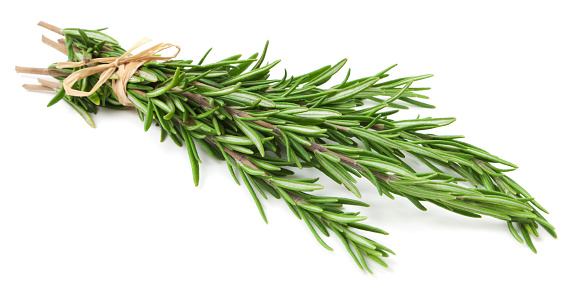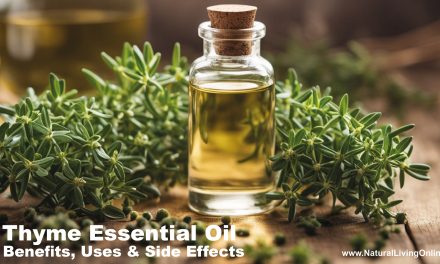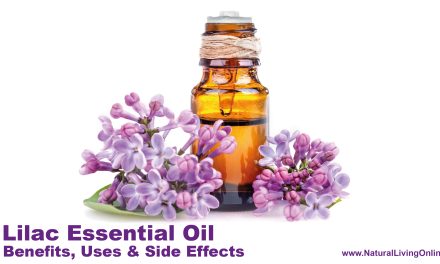Chamomile essential oil has a long history of use in traditional medicine. The essential oil is extracted from the flowers of the chamomile plant, and it has a variety of benefits. Chamomile oil is anti-inflammatory, soothing to the skin, and can promote relaxation. It may also be helpful for reducing anxiety and stress.
Essential Oil Profile / Monograph
Botanical Name: Matricaria Chamomilla
Common Names: Chamomile, Blue Chamomile, German Chamomile, Roman Chamomile
Plant Family: Asteraceae
Countries of origin: Europe
Extraction Method: Steam distillation
Parts Used: Flower heads
Essential Oil smell: Fruity, sweet, warm
Essential Oil Color: Blue-green to pale yellow
Viscosity: Medium
Perfumery Note: Middle
Strength of Aroma: Medium
Blends Well With: Lavender, neroli, rosemary, tea tree
Therapeutic Properties: Anti-inflammatory, anti-spasmodic, carminative, digestive, sedative
Uses: Anxiety, colic, inflammation, muscle spasms, skin conditions
Contraindications: Chamomile oil should not be used in conjunction with other sedative medications, as it may cause excessive drowsiness. It also should not be used with citrus oils, as they can alter the composition of the oil and lead to adverse reactions. Chamomile oil can interact with certain medications. Consult with a healthcare professional before using chamomile oil if you are taking any medication. Avoid during pregnancy. Not for use with infants or small children.
Side Effects: Chamomile oil is generally considered safe. However, it is always best to consult with a healthcare professional before using any essential oils. Possible side effects of chamomile essential oil include skin irritation and allergic reactions. If you experience any adverse reaction after using chamomile oil, discontinue use and consult with a healthcare professional.
Types: German chamomile, Roman chamomile, and Moroccan chamomile
Chemical Constituents with percentages: Alpha-bisabolol (30-48%), bisabolol oxide A (0.33-0.83%), bisabolol oxide B (0.17-11.67%) Chamazulene (12.54%), farnesene (< 0.01-13.33%)
What is Chamomile?
Chamomile (Matricaria chamomilla) is an annual herb in the Asteraceae family that is native to Europe. Chamomile has been used for centuries in traditional medicine for its calming and relaxing properties. Chamomiles have been cultivated throughout Europe since at least AD 500 where they were grown both medicinally and ornamentally due to their low maintenance requirements making them ideal for gardens without much care or effort required on behalf of those who wished to enjoy their benefits.
The chamazulene compounds present in Chamomile oil are not found in any other essential oil, which is what contributes to its unique and pleasant aroma. These compounds are also responsible for the majority of Chamomile’s therapeutic properties. The essential oil is extracted from the flowers of the chamomile plant and has a variety of benefits. There are three main types of chamomile essential oils: German, Roman and Moroccan. They differ in their use and benefits but all provide very similar properties for the skin.
Difference between German, Roman and Moroccan Chamomile
The main difference between German, Roman and Moroccan chamomile is the part of the plant that is used to make the oil. German chamomile uses the flower heads, Roman chamomile uses the leaves and stems, while Moroccan chamomile uses both. German chamomile is more anti-inflammatory than Roman and Moroccan chamomile. Roman chamomile is more soothing to the skin, while Moroccan chamomile is thought to be more relaxing.
German Chamomile
German chamomile oil is one of the most popular essential oils. It has a sweet, herbaceous aroma and is high in antioxidants. German chamomile oil is anti-inflammatory and can help to soothe irritated skin. It is also helpful for reducing stress and anxiety.
Roman Chamomile
Roman chamomile oil is less popular than German chamomile oil, but it has similar benefits. Roman chamomile oil is also anti-inflammatory and can help to soothe the skin. It has a sweet, floral aroma and is also helpful for reducing stress and anxiety.
Moroccan Chamomile
Moroccan chamomile oil is less popular than German and Roman chamomile oils, but it has similar benefits. Moroccan chamomile oil is also anti-inflammatory and can help to soothe the skin. It has a sweet, herbaceous aroma and is also helpful for reducing stress and anxiety.
Historical Use
Chamomile oil was first used in traditional medicine around AD 1500. It was popularized by the Romans, who used it to treat a variety of conditions like insomnia, anxiety and digestive issues. The plant was also grown in herb gardens across Europe during this time. one of the most common use of chamomile flowers is to make chamomile tea which helps improve good sleep.
What are the benefits of Chamomile Essential Oil?
Chamomile has been shown to have anti-inflammatory properties, which means it can help reduce redness caused by inflammation. It is also a great choice for people with sensitive skin, as it is gentle and won’t cause any irritation. Chamomile oil can also help soothe the skin and promote relaxation, making it a perfect choice for massage oils or bath additives.
Chamomile essential oil may also be helpful in reducing anxiety and stress levels. The aroma of chamomile has been shown to have calming effects on the mind and body, which can help you relax after a long day.
Internal Use
Chamomile essential oil can be taken internally in small amounts to help reduce stress and anxiety levels. It can also be used to soothe an upset stomach. Chamomile oil is considered safe for internal use, but it is always best to consult with a healthcare professional before taking any essential oils internally.
Historical use of Chamomile as a herbal medicine
Chamomile has been used for centuries as a herbal medicine. It was traditionally used to treat stomach ailments and skin conditions. Chamomile tea is still popular today and can be found in most grocery stores.
Topical use
Chamomile essential oil can be applied topically to the skin. It is best to dilute chamomile oil with a carrier oil before applying it to the skin. Chamomile oil can be used to soothe irritated skin and reduce inflammation.
Chamomile essential oil benefits for skin
Chamomile essential oil is great for people with sensitive skin as it is gentle and won’t cause any irritation. Chamomile oil can also help to soothe the skin and reduce inflammation.
Chamomile essential oil benefits for hair
Chamomile essential oil can be used to help condition the hair and scalp. It can also help to reduce dandruff and dryness.
Chamomile essential oil for spiritual benefits
It was also believed that inhaling chamomile fumes would help protect against evil spirits! This led to many superstitions surrounding this plant such as being planted around houses for protection from witches (or bad luck). Nevertheless German Chamomile essential oil has a calming effect on the mind and body, which can help you relax after a long day. It can also be used to promote peace and tranquility during meditation and prayers.
Chamomile Oil for kids
Chamomile essential oil is generally considered safe for kids. However, it is always best to consult with a healthcare professional before using any essential oils on children.
Aromatherapy
German Chamomile essential oil can be used in aromatherapy to help promote relaxation and reduce stress levels. The soothing aroma of German chamomile can help you unwind after a long day.
Diffuser blends for aromatherapy with Chamomile Essential Oil
-Chamomile and Lavender: This blend is perfect for relaxation and stress relief. When combined with lavender essential oil, Chamomile can be an effective remedy for headaches, tension relief and stress management.
-Chamomile and Peppermint: This refreshing blend can help to boost your energy levels.
-Chamomile and Rosemary: This invigorating blend can help to improve focus and concentration.
-Chamomile and Orange: This cheerful blend can help to uplift your mood.
-Chamomile and Bergamot: This calming blend can help to reduce anxiety and promote relaxation.
-Chamomile and Grapefruit: This refreshing blend can help to improve your mood and energy levels.
-Chamomile and Lemon: This uplifting blend can help to improve your focus and concentration.
DIY recipes using Chamomile Essential Oil
-Chamomile Bath Salts: Add a few drops of chamomile oil to a cup of Epsom salt and dissolve in a warm bath.
-Chamomile Body Scrub: Mix together equal parts chamomile oil and sugar. Rub on the body in a circular motion and rinse off with warm water.
-Chamomile Facial Steam: Add a few drops of chamomile oil to a bowl of hot water. Place a towel over your head and inhale the steam for a few minutes.
-Chamomile Lip Balm: Mix together equal parts chamomile oil and beeswax. Melt the mixture and pour into a small container. Apply to lips as needed.
-Chamomile Room Spray: Add a few drops of chamomile oil to a spray bottle filled with water. Shake well and use as needed.
Frequently Asked Questions
Who should not use Chamomile oil?
Chamomile oil should not be used by people who are allergic to plants in the Asteraceae family, such as chrysanthemums, ragweed, and daisies. Chamomile oil also should not be used by people with hay fever or asthma.
Does Chamomile oil interact with any medicine?
Yes, Chamomile oil can interact with certain medications, such as those that are taken for blood thinning or diabetes. Chamomile oil also can cause an allergic reaction in people who are allergic to plants in the Asteraceae family.
Can you use Chamomile oil everyday?
Yes, Chamomile oil can be used everyday. However, it is always best to consult with a healthcare professional before using any essential oils.
Is Chamomile oil safe to diffuse for kids to sleep?
Chamomile oil is generally considered safe for kids. However, it is always best to consult with a healthcare professional before using any essential oils on or for children.
Is Chamomile oil good for hair?
Yes, Chamomile oil can be good for hair. Chamomile oil can help to improve the appearance of dry or damaged hair.
What are lavender and chamomile essential oil blend benefits?
The benefits of a lavender and chamomile essential oil blend include relaxation, stress relief, and improved sleep. This blend can also help to reduce anxiety and promote calmness. When diffused, this blend can fill a room with a relaxing, soothing aroma.
References:
Chamomile (Matricaria chamomilla L.): An overview
Chamomile: A herbal medicine of the past with bright future
This website does not provide medical advice.
All information provided on this website, and on associated social media networks, including but not limited to texts, images, and numbers are for general information purpose only. It is not intended as medical advice and it does not include all possible precautions, side effects, or interactions that may occur. Neither NaturalLivingOnline.com nor its author/founder take responsibility for how you use this information. Statements contained on NaturalLivingOnline.com have not been evaluated by the FDA. You should conduct thorough research via multiple sources and consult your physician or qualified doctor before using any essential oil or herbal remedy. Information on NaturalLivingOnline.com must not be relied upon for medical, legal, financial or other decisions.













